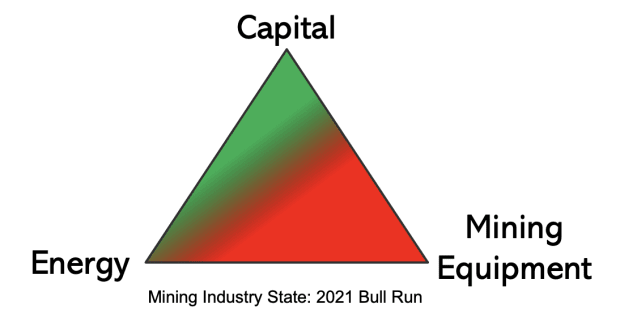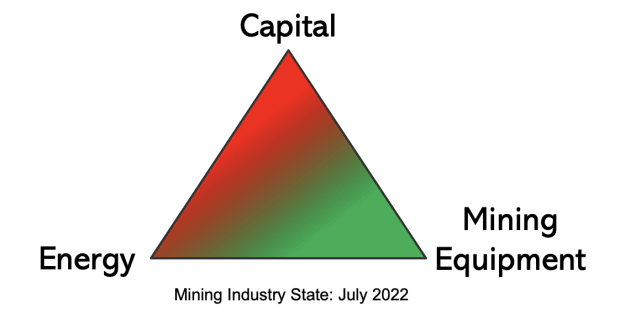Three key factors come into play when bitcoin mining companies are trying to not only be profitable, but just to stay afloat during bear markets.
This is an opinion editorial by Bob Burnett, the founder and CEO of Barefoot Mining.
It would be fair to say that I entered the world of bitcoin mining through the backdoor. Prior to 2017, I’d had limited exposure to Bitcoin. That changed when I was approached by an acquaintance who needed access to a large volume of Ethereum mining equipment. Since I’d spent the majority of my 30-year career in the personal computer industry, he was hoping I’d be able to leverage my network to get access to the scarce GPUs needed and to design an enterprise-class server to house them. My team and I were able to do this, which was the catalyst for the creation of Barefoot Mining, the company I now run. (Note to all Bitcoiners: We soon shifted our focus to Bitcoin-only and became the U.S. distributor for Bitfury.)
In 2017, “crypto” was hot. Therefore, finding investors to put capital into mining ventures was not very difficult and competition for energy sources to support the mining sites of the time was relatively low. So, access to mining equipment was the key enabler to enter the market. For Barefoot Mining, we had solved this difficult portion of the equation and because capital and energy were fairly easy to find, we were able to evolve to also running hosting and mining centers.
Early in 2018, the industry entered a “crypto winter” and the dynamics quickly shifted. Investor interest cooled while energy sites remained plentiful and access to mining equipment eased. The mining industry remained in this state until the latter portion of 2020 when the price of bitcoin rose and the market dynamics pivoted quickly. Based on this catalyst, new capital flowed into the market and mining equipment supply lines tightened almost instantly. For the first time, miners started to see scarcity in energy markets.
Watching and living through these changes revealed a pattern to me which I now call the “Miner’s Trilemma.” The first axiom of the Miner’s Trilemma states, “In the Bitcoin mining business three variables — capital, energy and mining equipment — will always be in play, and at least one of them will always be difficult to obtain.” A visual representation of the market and the Miner’s Trilemma during the most recent bull run is shown in the graphic below:

This contrasts with the present market conditions (graphic below) in which capital availability has dried up, while mining equipment and pricing have loosened tremendously. Energy site access remains in roughly the same, somewhat difficult state. This illustrates the second axiom which states “when one of the three variables moves from a difficult state to an easy state, at least one of the variables in an easy state will move to a difficult state.”

The importance of the Miner’s Trilemma is that it gives an excellent set of rules to determine the likelihood of success for a mining business. Most mining companies, mine included, started with an advantage in one of the three key variables, but long-term success and growth requires the ability to pivot and continually solve for difficult variables. So, if you are thinking of starting a mining business, investing in a private mining venture or buying stock in a public mining company, make sure you examine the ability of that entity to solve the Miner’s Trilemma regardless of how the difficulty shifts. If they possess a solution for each of these, then there is a business foundation upon which a competent and experienced management can execute. Lack any of these three and the company will ultimately face a massive survival test.
This is a guest post by Bob Burnett. Opinions expressed are entirely their own and do not necessarily reflect those of BTC Inc. or Bitcoin Magazine.



















